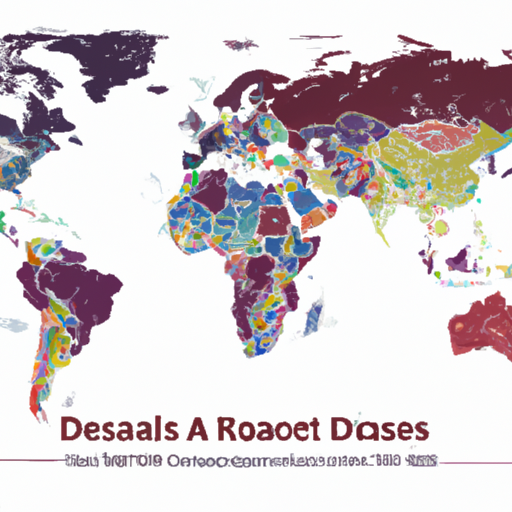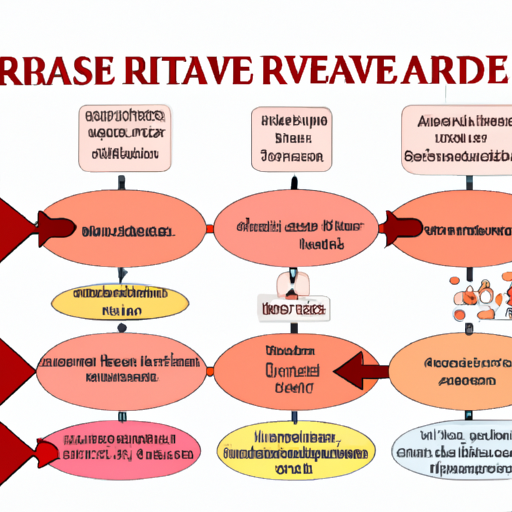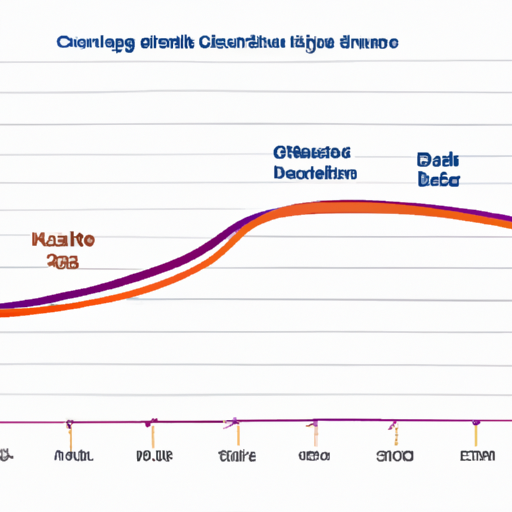This blogpost explores the significant role of companies specializing in rare diseases, often termed 'orphan diseases'. These pioneers in health are instrumental in advancing medical research, developing targeted therapies, and driving patient advocacy. The article delves into the unique challenges and opportunities these companies face, their innovative approaches, and the impact on affected patients' lives.
The Uncharted Territory: What are Rare Diseases?
Rare diseases are a complex and often misunderstood area of healthcare. These conditions, also known as orphan diseases, affect a small percentage of the population, typically fewer than 200,000 individuals in the United States. What sets rare diseases apart is their rarity, which poses unique challenges in diagnosis, treatment, and research.
Rare diseases encompass a wide range of conditions, with over 7,000 known disorders identified to date. These diseases can affect any part of the body and can have severe, chronic, and life-threatening consequences for those affected. Some examples of rare diseases include cystic fibrosis, Huntington's disease, and amyotrophic lateral sclerosis (ALS).
One of the key characteristics of rare diseases is the lack of understanding and limited research surrounding them. Due to their rarity, many rare diseases are underdiagnosed or misdiagnosed, leading to delayed or ineffective treatment. The limited knowledge about these conditions also means that there are often no approved treatments available, leaving patients and their families desperate for solutions.
Furthermore, the impact of rare diseases extends far beyond the individual patient. Families and caregivers of individuals with rare diseases often face significant emotional, financial, and logistical challenges. The burden of these diseases can be overwhelming, as many individuals require specialized care, multiple medical interventions, and ongoing support.
Despite the challenges posed by rare diseases, there is growing recognition of the importance of addressing these conditions. Advances in technology, genomics, and medical research have provided new opportunities to delve into the mysteries of rare diseases. Companies specializing in rare diseases play a crucial role in filling the gaps in knowledge, developing innovative treatments, and advocating for patients.

A world map highlighting the prevalence of rare diseases globally
לעוד מידע אודות Pioneers in Health: The Role of Companies Specializing in Rare Diseases יש להעיף מבט ב- truemedtx.com
Why Specialize in Rare Diseases? Is it a risk worth taking?
Specializing in rare diseases may seem like a risky endeavor for companies in the healthcare industry. The limited patient population and the complex nature of these conditions present unique challenges. However, there are compelling reasons why companies choose to focus their efforts on rare diseases.
Firstly, companies specializing in rare diseases have the opportunity to make a significant impact on patients' lives. For individuals with rare diseases, the lack of treatment options can be devastating. By concentrating their resources and expertise on these conditions, companies have the potential to develop groundbreaking therapies and improve the quality of life for patients and their families.
Moreover, the field of rare diseases offers a fertile ground for innovation and scientific discovery. The study of rare diseases often leads to the identification of genetic mutations or biological processes that are relevant to a broader range of diseases. Research conducted in the rare disease space can have far-reaching implications for understanding and treating more common conditions.
Additionally, specializing in rare diseases can provide companies with a competitive advantage. With fewer players in the market, there is less competition and potentially greater opportunities for market share. Furthermore, the orphan drug designation and incentives provided by regulatory agencies can expedite the development and approval process for treatments, making it an attractive prospect for companies seeking to bring novel therapies to market.
While there are risks involved in focusing on rare diseases, such as the high cost of research and development, the potential rewards can outweigh the challenges. Companies that successfully navigate the complexities of rare diseases stand to make a significant impact on patients' lives, contribute to scientific knowledge, and potentially achieve financial success.
Innovation in the Face of Adversity: How are These Companies Advancing Medical Research?
Companies specializing in rare diseases are at the forefront of medical research and are driving innovation in the field. Despite the challenges they face, these companies are making significant strides in advancing our understanding of rare diseases and developing novel treatments.
One way these companies are advancing medical research is through the use of cutting-edge technologies. They are harnessing the power of genomics, proteomics, and other omics technologies to identify genetic mutations and biomarkers associated with rare diseases. This allows for more precise diagnosis, targeted therapies, and personalized medicine approaches.
Furthermore, companies specializing in rare diseases are actively collaborating with academic institutions, patient advocacy groups, and other industry partners. These collaborations foster a multidisciplinary approach to research and enable the sharing of knowledge, resources, and expertise. By working together, they can accelerate the pace of discovery and development of innovative therapies.
In addition to leveraging technology and collaboration, these companies are also exploring innovative trial designs and regulatory pathways. They are employing adaptive trial designs, which allow for flexibility and more efficient testing of potential treatments. Moreover, they are engaging with regulatory agencies to navigate the complex regulatory landscape and expedite the approval process for orphan drugs.
Another way these companies are advancing medical research is by investing in patient-centric approaches. They recognize the importance of patient input in the drug development process and actively involve patients and their families in clinical trials, study design, and decision-making. This patient-centric approach ensures that the unique needs and perspectives of rare disease patients are considered, leading to more effective and meaningful outcomes.

A flowchart detailing the process of medical research advancement in the context of rare diseases
"The Future Depends on What You Do Today": The Role of Patient Advocacy
Patient advocacy plays a crucial role in the advancement of rare disease research and the development of innovative treatments. Rare disease patients and their families are often faced with unique challenges, such as limited treatment options, lack of awareness, and financial burdens. Patient advocacy organizations work tirelessly to raise awareness, provide support, and advocate for the needs and rights of rare disease patients.
These organizations play a vital role in bridging the gap between patients, healthcare professionals, and policymakers. They serve as a voice for the rare disease community, amplifying their concerns and advocating for policies that promote research, access to treatments, and improved healthcare infrastructure. By actively engaging in advocacy efforts, patients and their families have the power to shape the future of rare disease research and ensure that their needs are adequately addressed.
Patient advocacy organizations also contribute to the research process by facilitating collaboration between patients, researchers, and industry experts. They help connect patients with clinical trials, facilitate data sharing, and provide valuable insights into the patient experience. This patient-centered approach to research not only ensures that the unique needs of rare disease patients are considered but also improves the overall quality and relevance of research outcomes.
Moreover, patient advocacy organizations play a crucial role in raising funds for research and treatment development. Through fundraising campaigns, awareness events, and partnerships with industry and philanthropic organizations, they help secure the necessary resources to support research initiatives and provide financial assistance to patients in need. By mobilizing the community and fostering a sense of solidarity, patient advocacy organizations have the power to drive meaningful change and accelerate the progress in rare disease research.
Challenges and Opportunities: The Unique Landscape of Rare Disease Research
The landscape of rare disease research presents both challenges and opportunities that are distinct from other areas of medical research. One of the primary challenges is the limited understanding of rare diseases due to their rarity and complexity. With fewer cases available for study, researchers face difficulties in gathering sufficient data and conducting comprehensive clinical trials. Additionally, the lack of awareness and knowledge about rare diseases among healthcare professionals can lead to misdiagnosis or delayed diagnosis, further hindering research progress.
Another challenge in rare disease research is the high cost associated with developing treatments. The small patient populations make it economically challenging for pharmaceutical companies to invest in research and development. The limited market potential and high costs of clinical trials often discourage industry investment, leaving many rare diseases without effective treatments. This highlights the need for alternative funding models and collaborations between academia, industry, and government agencies to overcome these financial barriers.
However, amidst these challenges, there are also unique opportunities in rare disease research. Advances in technology, such as genomics and precision medicine, have revolutionized our understanding of rare diseases. The ability to analyze individual genomes has paved the way for targeted therapies and personalized medicine, offering hope for patients with rare diseases. Furthermore, the rise of patient advocacy and patient-led research initiatives has empowered patients and their families to actively participate in research, driving innovation and collaboration.
Collaboration and data sharing are crucial in rare disease research, as pooling resources and knowledge is essential to overcome the limitations of small patient populations. International networks and consortia have been formed to facilitate collaboration and data sharing across borders, enabling researchers to leverage collective expertise and resources. Additionally, advancements in data science and artificial intelligence have the potential to analyze vast amounts of data and identify patterns that can lead to breakthroughs in rare disease research.

A line graph showing the challenges and opportunities in rare disease research over time
Success Stories: How have these companies changed lives?
The impact of companies specializing in rare diseases on patients' lives cannot be overstated. These companies have made significant contributions to the treatment and management of rare diseases, transforming the lives of patients and their families. One remarkable success story is the development of targeted therapies that have revolutionized the treatment landscape for specific rare diseases. These therapies, designed to address the underlying genetic or molecular abnormalities causing the disease, have shown remarkable efficacy and safety profiles, providing new hope for patients who previously had limited or no treatment options.
In addition to developing effective treatments, these companies have also played a crucial role in raising awareness about rare diseases. Through their advocacy efforts, they have successfully increased public knowledge and understanding of these conditions, helping to reduce the stigma and isolation that patients often face. By raising awareness, these companies have facilitated earlier diagnosis, access to appropriate care, and support networks for patients and their families. This has had a profound impact on patients' quality of life and overall well-being.
Furthermore, companies specializing in rare diseases have been instrumental in fostering collaborations between researchers, healthcare professionals, and patient communities. By bringing together diverse stakeholders, these companies have created platforms for sharing knowledge, resources, and expertise. This collaborative approach has accelerated research and development efforts, leading to faster translation of scientific discoveries into clinical practice. Through these collaborations, breakthroughs in understanding the pathophysiology of rare diseases and the development of innovative treatment approaches have been achieved.
Perhaps the most powerful success stories come from the patients themselves. Many individuals living with rare diseases have seen their lives transformed by the efforts of these companies. They have gained access to life-saving treatments, experienced improved quality of life, and found a sense of community and support. These success stories not only highlight the impact of these companies on individual lives but also serve as a source of inspiration and hope for the broader rare disease community.
Looking Ahead: What is the Future for Companies Specializing in Rare Diseases?
The future for companies specializing in rare diseases is promising and filled with opportunities. As scientific advancements continue to accelerate, we can expect these companies to play an even more significant role in improving the lives of patients with rare diseases.
Firstly, with the advent of precision medicine and personalized therapies, we can anticipate a shift towards more targeted approaches in treating rare diseases. Companies specializing in rare diseases are well-positioned to capitalize on this trend by leveraging their expertise in understanding the unique genetic and molecular drivers of these conditions. This personalized approach has the potential to revolutionize treatment outcomes and further improve the quality of life for patients.
Secondly, the increasing availability of big data and advancements in artificial intelligence (AI) present exciting possibilities for companies specializing in rare diseases. By harnessing the power of AI and machine learning algorithms, these companies can analyze vast amounts of data, identify patterns, and make predictive models. This can lead to more accurate diagnosis, earlier intervention, and the discovery of novel therapeutic targets.
Additionally, the growing emphasis on patient-centricity and patient engagement is likely to shape the future of companies specializing in rare diseases. Patients and their families are becoming more empowered and actively involved in decision-making processes. Companies that prioritize patient advocacy and incorporate patient perspectives into their research and development efforts will be better positioned to succeed in this evolving landscape.

An artist's impression of futuristic medical technologies for treating rare diseases
In conclusion, companies specializing in rare diseases are indeed pioneers in health. Their dedicated work pushes the boundaries of medical science, bringing hope to millions suffering from these orphan diseases. Despite the formidable challenges, these companies' commitment to innovative solutions and patient advocacy underscores the importance of their role in healthcare. Their efforts not only improve patient outcomes but also enrich the broader scientific community and inspire further advancements.

